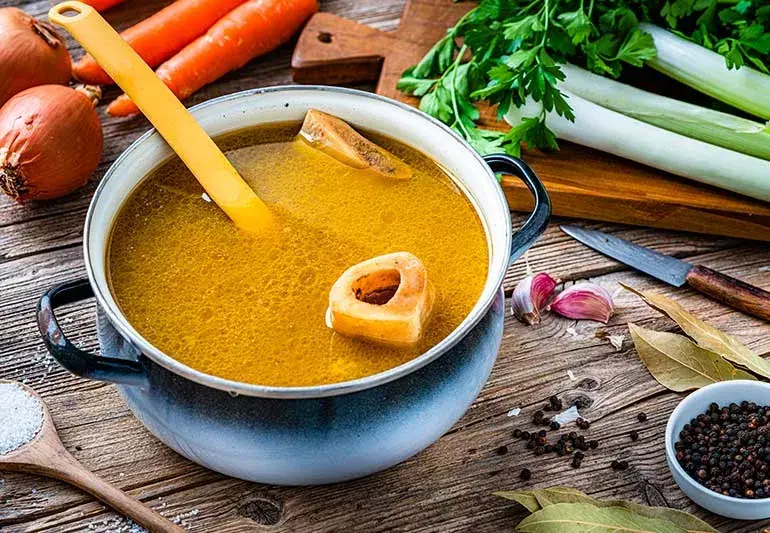Collagen is the most abundant protein in the human body, playing a vital role in maintaining healthy skin, joints, bones, and connective tissues. As we age, our natural collagen production decreases, leading to visible signs of aging such as wrinkles, sagging skin, and joint discomfort. In this comprehensive guide, we will explore what collagen is, its benefits, natural sources, and effective ways to boost collagen levels for healthier skin and body.
What Is Collagen?
Collagen is a structural protein that provides strength and elasticity to the skin, tendons, ligaments, and cartilage. It acts like glue, holding the body together. There are at least 16 types of collagen, but types I, II, and III are the most common. Type I collagen is the strongest and is found in skin, bones, and tendons. Type II is found in cartilage, and Type III supports the structure of organs and arteries.
Top Health Benefits of Collagen
1. Improves Skin Health
Collagen helps maintain skin elasticity and hydration. Studies have shown that collagen supplements can reduce wrinkles, dryness, and roughness, making the skin look more youthful and vibrant.
2. Supports Joint Health
As collagen levels decline, joints can become stiff and painful. Supplementing collagen may help reduce inflammation and improve symptoms of osteoarthritis, supporting joint flexibility and comfort.
3. Strengthens Hair and Nails
Collagen provides essential amino acids that are crucial for strong, healthy hair and nails. Many people notice reduced brittleness and breakage when collagen intake is increased.
4. Promotes Bone Strength
Since bones are largely made of collagen, adequate levels help maintain bone density and reduce the risk of fractures as we age.
5. Boosts Muscle Mass
Collagen contains glycine, which helps build muscle tissue and may enhance strength gains when combined with resistance training.
Natural Sources of Collagen
You can get collagen from both dietary sources and supplements. Here are some of the best natural sources:
- Bone broth: Rich in collagen extracted from animal bones and connective tissue.
- Chicken skin and cartilage: A good source of Type II collagen.
- Fish skin and scales: Provide Type I collagen with high bioavailability.
- Egg whites: Contain amino acids necessary for collagen production.
- Citrus fruits, berries, and leafy greens: These don’t contain collagen but are high in vitamin C, which supports collagen synthesis.
How to Boost Collagen Naturally
Eat Collagen-Rich and Collagen-Boosting Foods
A balanced diet that includes bone broth, fish, chicken, and vitamin C-rich fruits can help your body produce collagen naturally.
Take Collagen Supplements
Hydrolyzed collagen (collagen peptides) is easy to digest and can be mixed into drinks, smoothies, or soups. Look for supplements that are tested for purity and contain no unnecessary additives.
Protect Your Skin From the Sun
UV rays accelerate collagen breakdown. Always use sunscreen and wear protective clothing to slow down collagen loss.
Quit Smoking
Smoking reduces collagen production and leads to premature wrinkles and sagging skin. Quitting can help preserve your skin’s natural structure.
Stay Hydrated
Water is crucial for maintaining skin elasticity and supporting collagen’s function in tissues.
Final Thoughts
Collagen plays a crucial role in keeping your skin youthful, your joints flexible, and your bones strong. By eating the right foods, protecting your skin, and considering quality supplements, you can support your body’s natural collagen production and enjoy long-term health benefits.
Frequently Asked Questions
Q: At what age should I start taking collagen?
A: Collagen production starts to decline in your mid-20s, so many people choose to start supplementation around that age to maintain skin and joint health.
Q: Is marine collagen better than bovine collagen?
A: Both have benefits. Marine collagen (from fish) is highly bioavailable and rich in Type I collagen, great for skin. Bovine collagen (from cows) contains Types I and III, ideal for skin, bones, and muscles.
Q: Can vegetarians get collagen?
A: Collagen is animal-derived, but vegetarians can boost their body’s natural collagen production with amino acid-rich plant foods and vitamin C.


